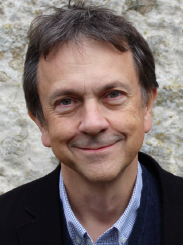
The wait is over. Arts Council England (on behalf of the DfE) has announced the new Hub Lead Organisations, which come into effect in September. A list of the 40+ organisations is available on the ACE website, as is a map showing their new geographical responsibilities. The process of appointing HLOs for London South West and South Yorkshire continues, though the decision on these is due in July.
The incoming HLOs are to be warmly congratulated, of course. Inevitably, other organisations will be disappointed, and the ramifications for staff across the sector will be unclear after such a major reorganisation. This month's MT carries general advice on employment matters, but there are bound to be many questions, affecting all areas, over the coming months. Among these is how the £25 million instrument fund is to be spent (for clues, make sure to read next month's issue).
In other striking news, RSL Awards and the Gospel Music Industry Alliance have announced plans for the UK's first graded gospel exams, for singers and instrumentalists. While the full details are yet to be shared, this seems a very welcome development, providing a national qualification and formal recognition for musicians from the gospel performing tradition, drawing on the experience of well-placed artists. We look forward to covering this story in more detail in the coming months.
This piece of news dovetails nicely with the focus of this month's MT: ‘singing’ in all its forms. Writers encourage us to explore the potential of links between school and church choirs, in terms of pooling musical expertise and opportunities for primary-age pupils. They report from St Mary’s Music School on an exciting new vocal programme for Scotland, including for the Changing Voice – also covered as part of an article on keeping boys singing. They meet Brenda Rattray (featured on the cover), who gives a moving account of her journey as an expressive voice coach, composer and community musician, And they share tips for preparing for recorded vocal exams. As an extension to all this, we also consider composition and lyric-writing for Key Stage 2 and 3.
Elsewhere in this issue, Sharon Jagdev Powell of Leicestershire Music writes about their groundbreaking work on IDEA (Inclusion, Diversity, Equity and Access), with a call for sector-wide understanding and commitment. Representatives of the accreditation body JAMES provide an overview of how tech courses are serving the music industry. And staff and students on vocational courses share their opinions on why these are the go-to choice.
Finally, please help us shape the Music & Drama Education Expo 2025 and consider our call for papers or invitation to become part of the Advisory Board. Also, note that nominations are open for the Music & Drama Education Awards, celebrating your favourite resources and initiatives. The success of both events relies on the invaluable support and input of MT's distinguished readership!
– Phil Croydon, editor




